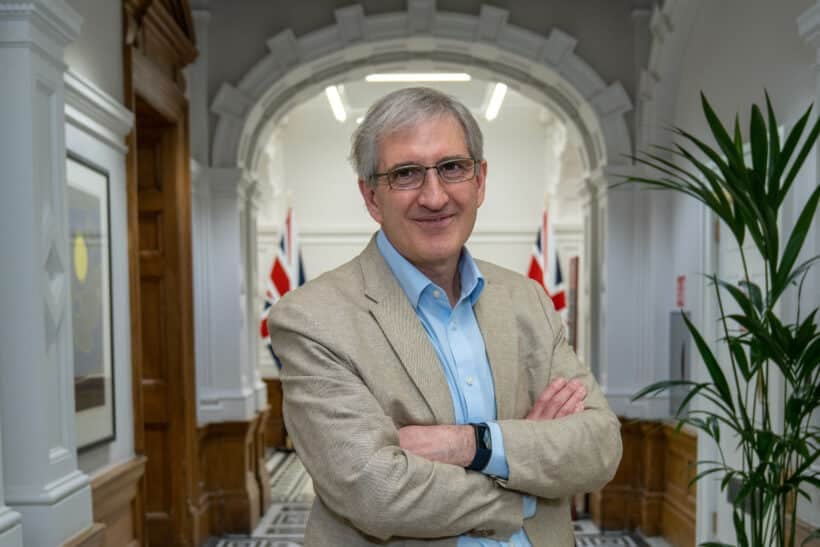
As the world navigates uncertain times – economic turbulence, climate change, conflict and global inequality – building economic bridges between communities that foster mutual trade, investment and understanding offers a beacon of hope. The recent UK-Francophone West and Central Africa Forum (WCAF) in London, which was heavily oversubscribed, felt like such a bridge, bringing people together and highlighting the vast potential for collaboration between the UK and Francophone Africa.
The WCAF, now in its third consecutive year, has established itself as a premier platform for fostering meaningful partnerships between governments, private sectors, and civil society. This year’s forum, organised by UK Export Finance in conjunction with DMA, was attended by high-profile government dignitaries from 9 African nations. They were welcomed by the UK Minister for Africa, Lord Collins, and the UK Minister Services, Small Businesses and Exports, Gareth Thomas and senior UK government officials from various relevant departments.
The UK government’s commitment to strengthening its economic ties with Africa is clear. As an example, we announced a finance deal worth over £60 million of support from British firms to help Cameroon improve vast swathes of land for farming. These sorts of deals are setting the tone for the UK’s vision of a stronger trading relationship with Africa which promotes sustainable, mutual growth which creates jobs and prosperity and improves people’s daily lives, especially for women and for young people.
So, what’s next? As we look to the future, it’s essential to build on the momentum generated by the WCAF. This means continuing to foster meaningful partnerships, driving growth and economic development, and promoting transparency and cooperation. The next edition is planned to be in Africa, which will make the event even more accessible and relevant.
Several key areas hold significant potential for further collaboration and investment opportunities between the UK and Africa: –
*Agriculture*: With Africa’s vast agricultural potential, partnerships can focus on improving yields, enhancing global food security, and promoting sustainable agricultural practices.
– *Energy*: As Africa increases energy access and transitions to cleaner energy sources, collaborations can centre on developing critical energy infrastructure, promoting energy efficiency, and enhancing energy access.
– *Healthcare*: Partnerships can focus on improving healthcare infrastructure, enhancing access to quality healthcare services, and promoting innovative healthcare solutions.
– *Sustainability*: Collaborations can prioritize sustainable development, focusing on environmental conservation, climate change mitigation, and promoting eco-friendly practices.
The WCAF has demonstrated the power of collaboration and investment in unlocking the vast potential of UK-Africa relations. As we move forward, it’s essential to build on this momentum, fostering meaningful partnerships that drive growth, economic development, and sustainable progress.
By working together, we can unlock the vast potential of the African continent and create a brighter economic future for all. The UK’s commitment to strengthening ties with Africa is clear, and the WCAF serves as a great example of this commitment. As we continue this journey, it’s essential to recognise the importance of transparency, understanding, cooperation, and mutual benefit.
By prioritizing these values, we can ensure that our partnerships are equitable, sustainable, and beneficial to all parties involved. The future of UK-Africa relations holds tremendous promise, and it’s up to us to seize this opportunity. Let’s work together to unlock the vast potential of the African continent and create a brighter economic future for all.

